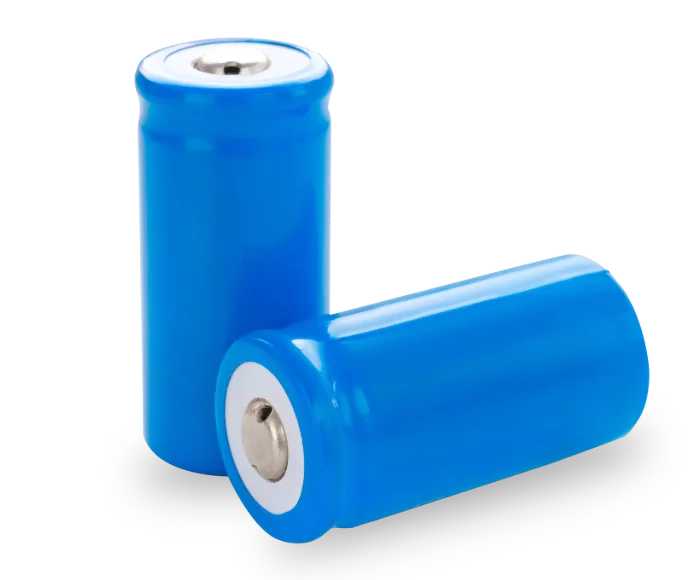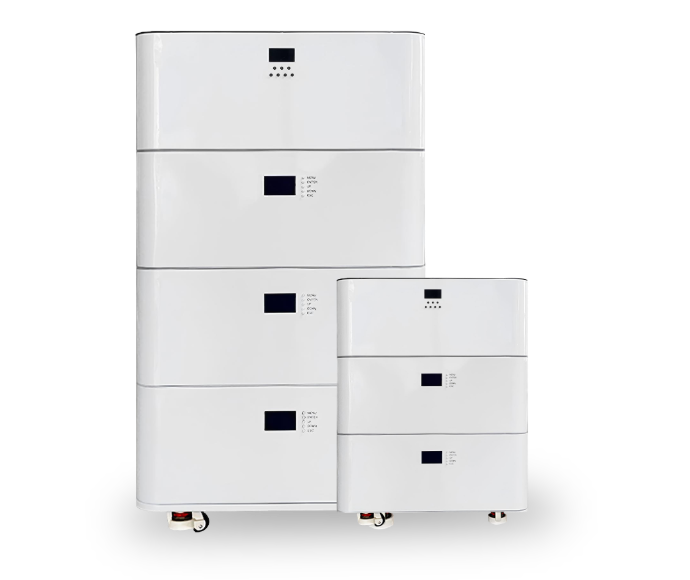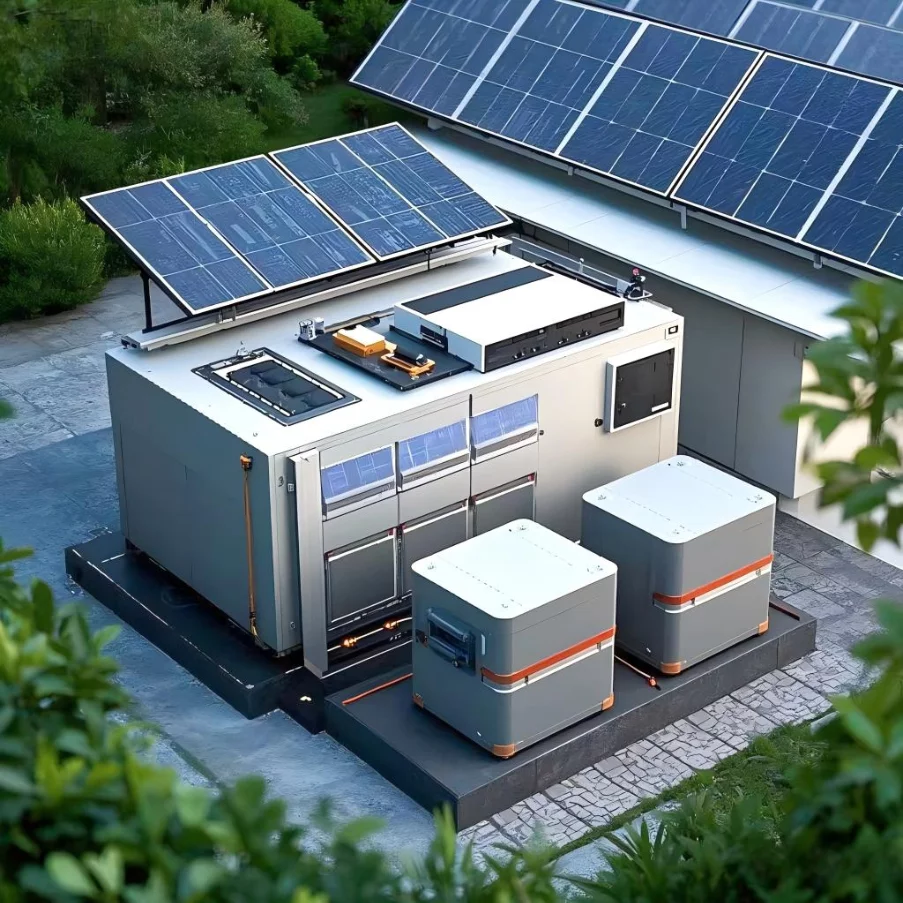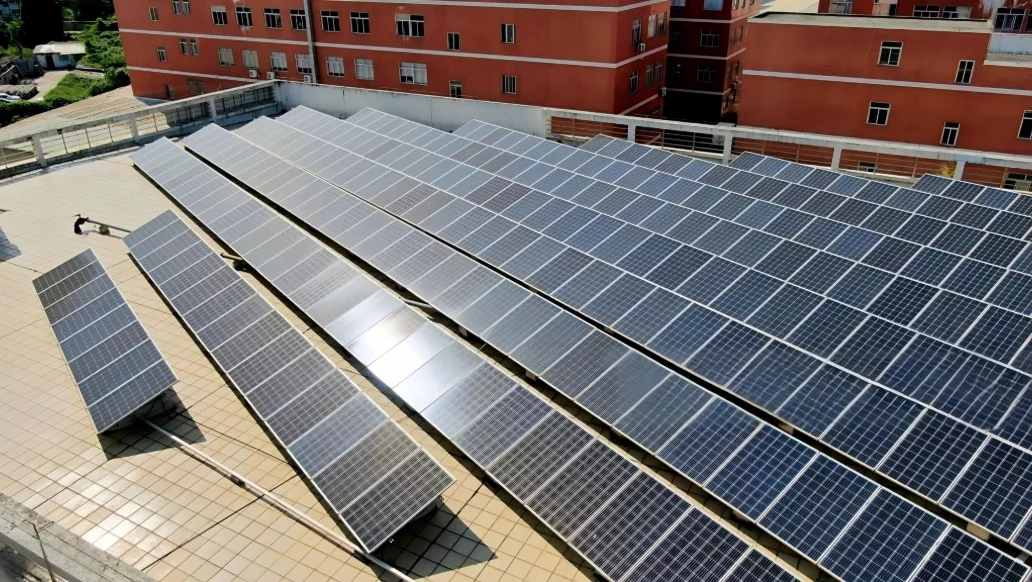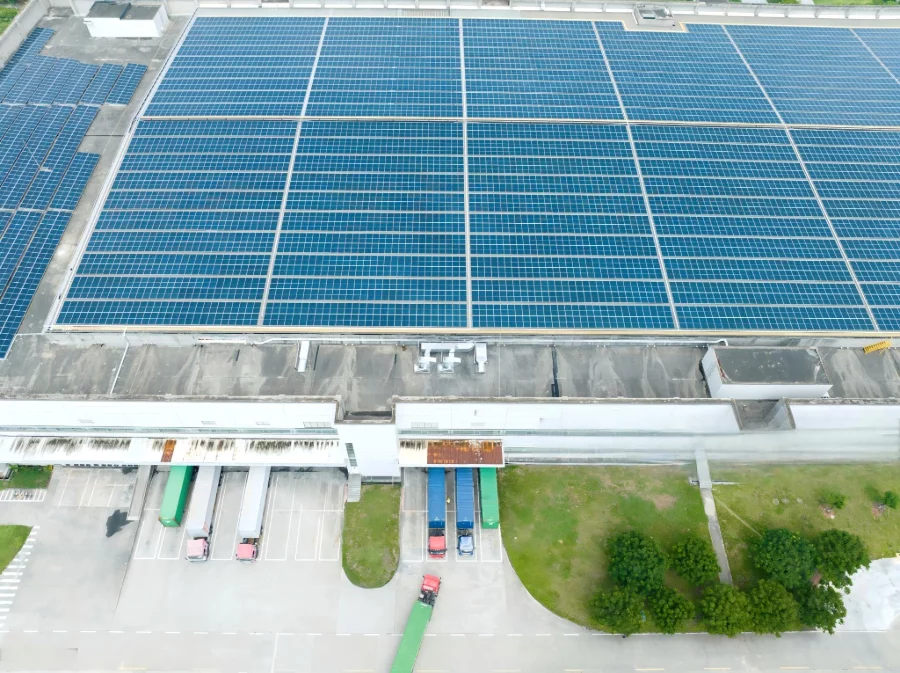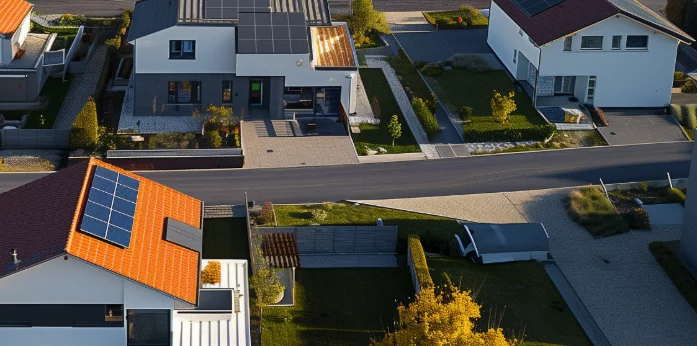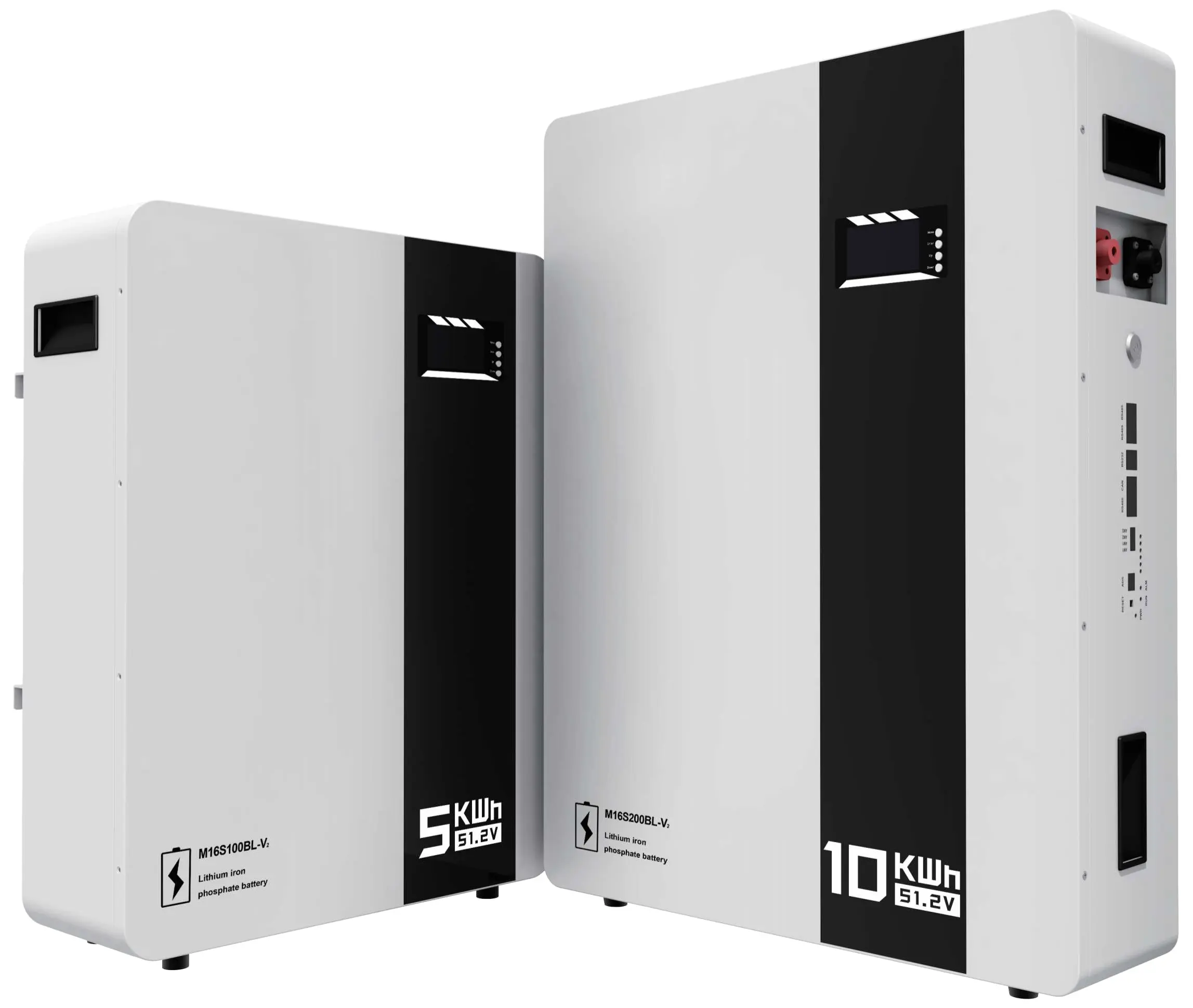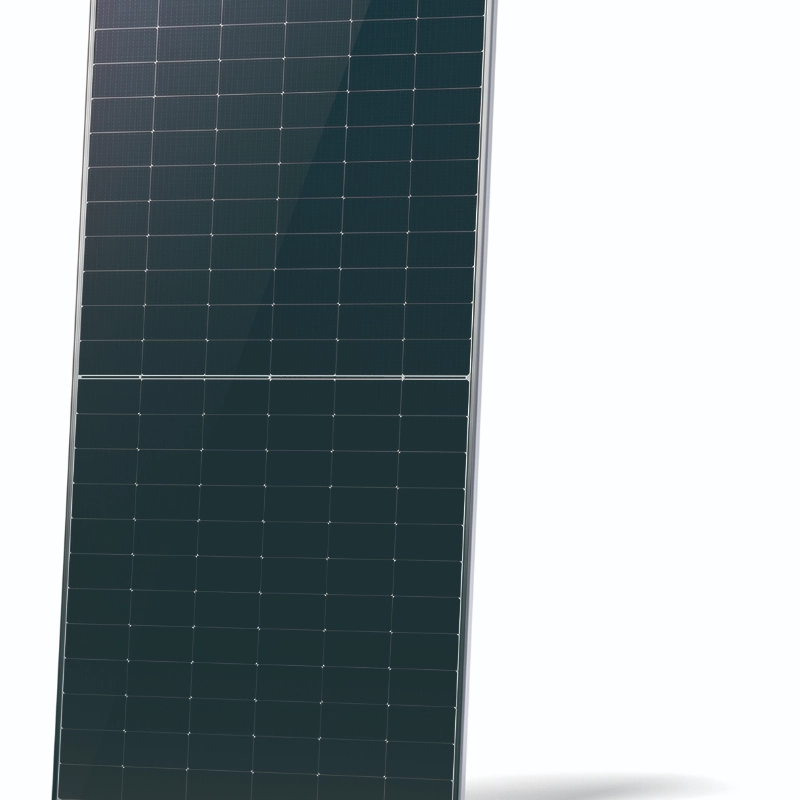จากบ้านสู่สิ่งแวดล้อม: การจัดเก็บพลังงานภายในบ้านช่วยสนับสนุนอนาคตสีเขียวได้อย่างไร
เวลาวางจำหน่าย: 2025-06-06
เนื่องจากทั่วโลกให้ความสำคัญกับความยั่งยืนและการปกป้องสิ่งแวดล้อมมากขึ้น ระบบกักเก็บพลังงานภายในบ้านจึงกลายมาเป็นส่วนสำคัญในการบรรลุอนาคตสีเขียวมากขึ้นเรื่อยๆ ด้วยการกักเก็บพลังงานหมุนเวียน เช่น พลังงานแสงอาทิตย์และพลังงานลม ระบบกักเก็บพลังงานภายในบ้าน มอบโซลูชันพลังงานที่มีประสิทธิภาพและยั่งยืนยิ่งขึ้นสำหรับครัวเรือน ซึ่งไม่เพียงช่วยลดการปล่อยคาร์บอนในครัวเรือนเท่านั้น แต่ยังช่วยปกป้องสิ่งแวดล้อมได้อย่างมีนัยสำคัญอีกด้วย
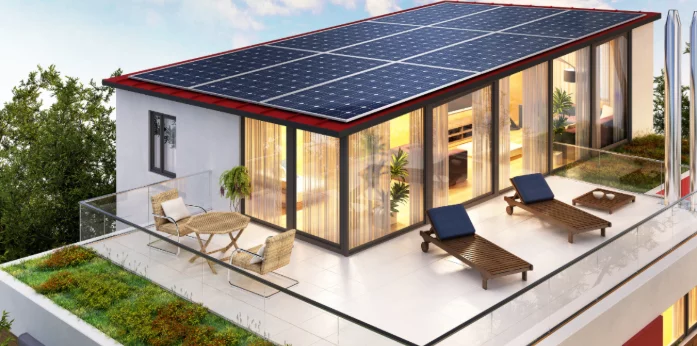
1. การเพิ่มความสามารถในการพึ่งพาตนเองด้านพลังงาน
ระบบกักเก็บพลังงานภายในบ้านสามารถกักเก็บพลังงานส่วนเกินได้อย่างมีประสิทธิภาพ โดยเฉพาะพลังงานหมุนเวียน ในระหว่างวัน เมื่อระบบพลังงานแสงอาทิตย์ผลิตไฟฟ้าส่วนเกิน อุปกรณ์กักเก็บพลังงานภายในบ้านสามารถกักเก็บพลังงานนี้ไว้ใช้ในเวลากลางคืน ด้วยวิธีนี้ ครัวเรือนจึงสามารถพึ่งพาพลังงานสีเขียวที่ผลิตขึ้นเองได้ ลดการพึ่งพาโครงข่ายไฟฟ้าแบบเดิม ลดต้นทุนด้านพลังงาน และลดการสูญเสียพลังงานไฟฟ้าให้เหลือน้อยที่สุด
2. การส่งเสริมการใช้พลังงานหมุนเวียนอย่างแพร่หลาย
พลังงานหมุนเวียน เช่น พลังงานแสงอาทิตย์และพลังงานลม มักจะไม่เสถียร ทำให้ยากต่อการตอบสนองความต้องการพลังงานได้อย่างสม่ำเสมอ ระบบกักเก็บพลังงานสำหรับที่อยู่อาศัย แก้ปัญหานี้โดยจัดเก็บพลังงานหมุนเวียนที่ผลิตได้ในช่วงชั่วโมงเร่งด่วนและนำมาใช้ในช่วงที่มีความต้องการพลังงานต่ำ โดยรักษาสมดุลระหว่างอุปทานและความต้องการพลังงาน กระบวนการนี้ทำให้ครัวเรือนสามารถใช้พลังงานหมุนเวียนได้อย่างมีประสิทธิภาพมากขึ้น ซึ่งจะช่วยวางรากฐานสำหรับการใช้พลังงานสีเขียวในระดับที่ใหญ่ขึ้น
3. ลดแรงกดดันของกริดและเพิ่มความน่าเชื่อถือของพลังงาน
เนื่องจากความต้องการไฟฟ้าเพิ่มขึ้น ระบบไฟฟ้าแบบดั้งเดิมจึงต้องเผชิญกับแรงกดดันอย่างมาก ระบบกักเก็บพลังงานภายในบ้านสามารถกักเก็บพลังงานไฟฟ้าส่วนเกินและปล่อยพลังงานดังกล่าวออกมาในช่วงที่มีความต้องการสูงสุด ซึ่งจะช่วยบรรเทาภาระของระบบไฟฟ้าได้ ในกรณีฉุกเฉิน ระบบกักเก็บพลังงานภายในบ้านยังสามารถให้พลังงานสำรองได้ ทำให้มั่นใจได้ว่าอุปทานพลังงานของครัวเรือนจะไม่หยุดชะงัก โดยเฉพาะในช่วงที่เกิดภัยธรรมชาติหรือไฟฟ้าดับ
4. การขับเคลื่อนการลดการปล่อยก๊าซคาร์บอน
การนำระบบกักเก็บพลังงานภายในบ้านมาใช้กันอย่างแพร่หลายช่วยลดการปล่อยคาร์บอนได้อย่างมาก โดยการลดการพึ่งพาเชื้อเพลิงฟอสซิล ครัวเรือนสามารถลดการปล่อยก๊าซเรือนกระจกได้อย่างมีประสิทธิภาพ การจัดเก็บและใช้พลังงานสีเขียวช่วยลดปริมาณคาร์บอนในครัวเรือน ซึ่งช่วยลดเป้าหมายในการลดการปล่อยก๊าซเรือนกระจกทั่วโลก โดยเฉพาะอย่างยิ่งในเขตเมืองที่ใช้พลังงานเข้มข้น ระบบกักเก็บพลังงานภายในบ้านสามารถลดการปล่อยคาร์บอนโดยรวมของเมืองได้อย่างมาก
5. ลดต้นทุนพลังงานในครัวเรือน
ค่าพลังงานถือเป็นส่วนสำคัญของค่าใช้จ่ายครัวเรือน ระบบกักเก็บพลังงานแสงอาทิตย์สำหรับที่อยู่อาศัย สามารถลดค่าไฟฟ้าได้อย่างมากโดยการกักเก็บพลังงานที่ผลิตเองและลดการพึ่งพาโครงข่ายไฟฟ้า โดยเฉพาะอย่างยิ่งเมื่อใช้พลังงานหมุนเวียน เช่น พลังงานแสงอาทิตย์ ครัวเรือนสามารถประหยัดค่าไฟฟ้าได้มากในระยะยาว เมื่อเทคโนโลยีการกักเก็บพลังงานพัฒนาต่อไป ต้นทุนของการกักเก็บพลังงานในบ้านก็ลดลงเรื่อยๆ ทำให้ครัวเรือนจำนวนมากขึ้นเรื่อยๆ สามารถซื้อพลังงานประเภทนี้ได้
6. การสร้างความตระหนักด้านสิ่งแวดล้อมและความรับผิดชอบต่อสังคม
การนำระบบกักเก็บพลังงานภายในบ้านมาใช้กันอย่างแพร่หลายไม่เพียงแต่เป็นนวัตกรรมในการจัดการพลังงานเท่านั้น แต่ยังส่งเสริมความตระหนักด้านสิ่งแวดล้อมและความรับผิดชอบต่อสังคมในระดับสังคมอีกด้วย ด้วยการใช้เทคโนโลยีพลังงานสะอาดและการกักเก็บพลังงาน ครัวเรือนไม่เพียงแต่จะประหยัดค่าใช้จ่ายด้านพลังงานเท่านั้น แต่ยังมีส่วนร่วมอย่างแข็งขันในการเปลี่ยนแปลงด้านพลังงานระดับโลก ซึ่งมีส่วนสนับสนุนอนาคตที่เป็นมิตรต่อสิ่งแวดล้อมอีกด้วย
ระบบกักเก็บพลังงานภายในบ้านกำลังกลายเป็นหนึ่งในเทคโนโลยีสำคัญที่สนับสนุนอนาคตสีเขียวอย่างรวดเร็ว ระบบดังกล่าวช่วยให้ครัวเรือนสามารถพึ่งพาตนเองด้านพลังงาน ลดการปล่อยคาร์บอน ลดแรงกดดันต่อระบบไฟฟ้า และส่งเสริมการนำพลังงานหมุนเวียนมาใช้ ด้วยความก้าวหน้าทางเทคโนโลยีอย่างต่อเนื่อง ระบบกักเก็บพลังงานภายในบ้านจะมีบทบาทสำคัญเพิ่มมากขึ้นในการเปลี่ยนผ่านสู่โลกสีเขียวระดับโลก ช่วยให้เกิดอนาคตที่เป็นมิตรต่อสิ่งแวดล้อม ประหยัด และยั่งยืนมากขึ้น

